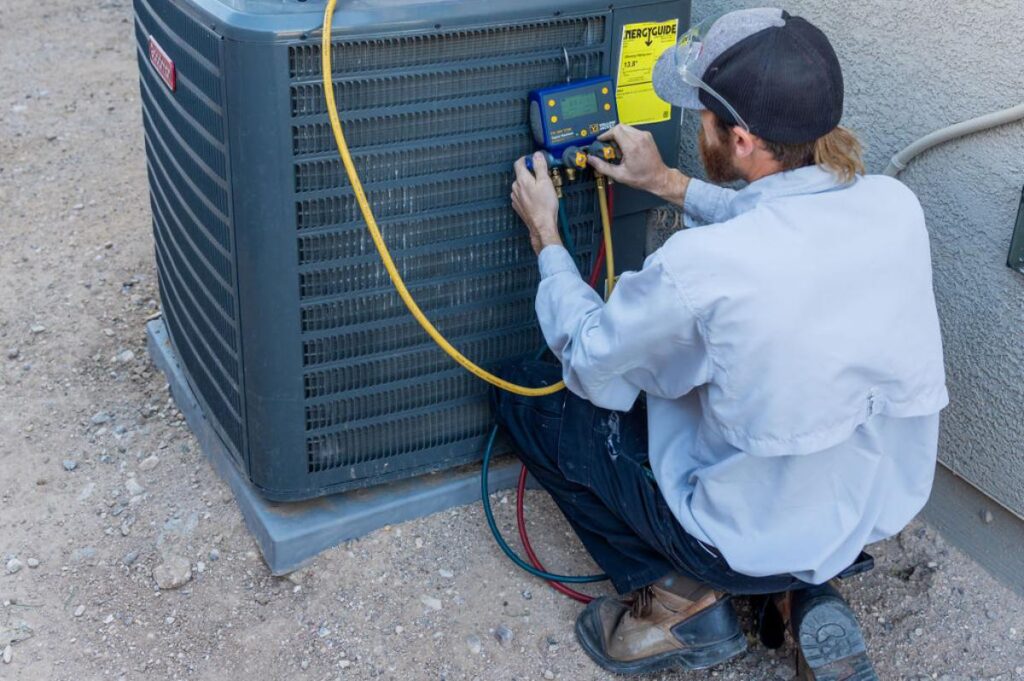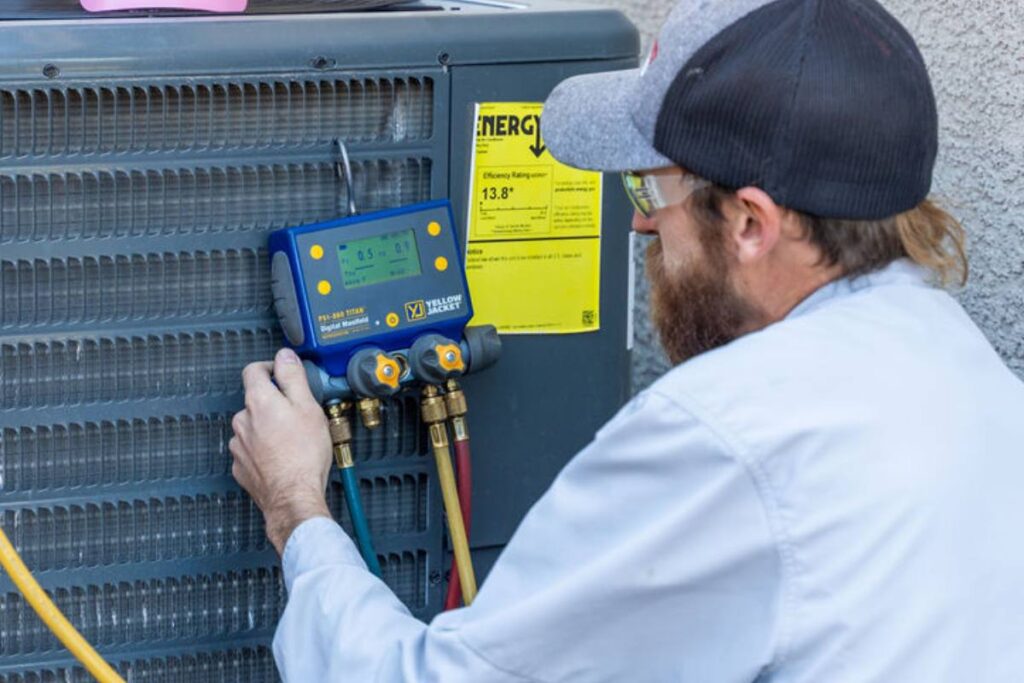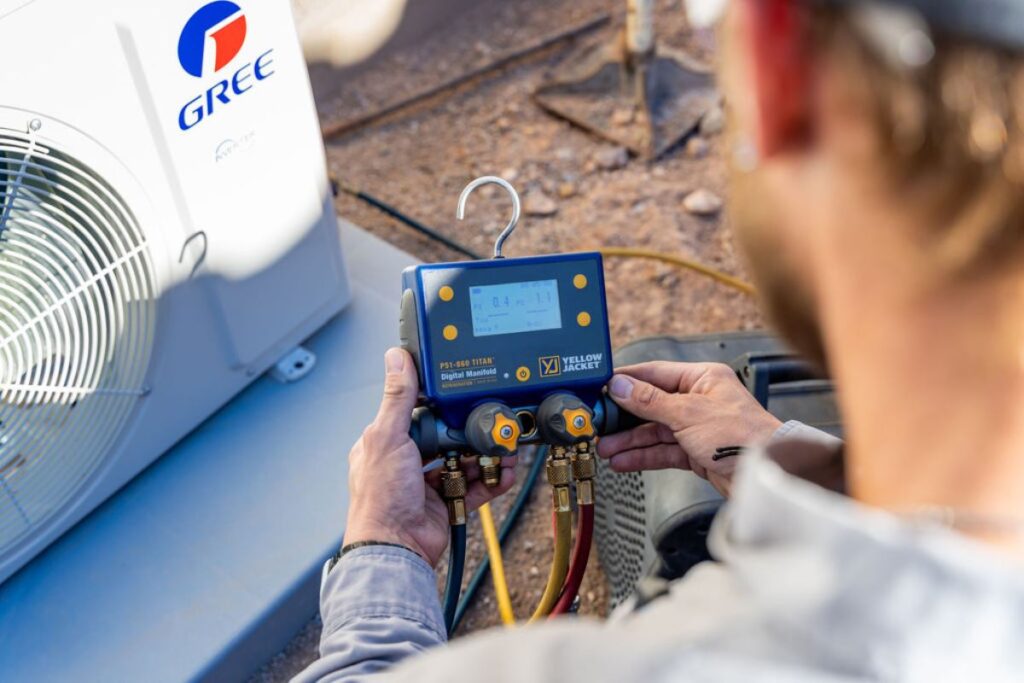
If you’re wondering “What is a SEER rating in HVAC?”, Done Rite has the answers. The Seasonal Energy Efficiency Ratio (SEER) rating assesses the energy efficiency of air conditioning and heating pump (cooling mode) systems. Think of it as the HVAC equivalent of miles per gallon in cars — the higher the SEER rating, the more energy-efficient the system is.
Read on to learn more about the SEER rating and why it matters in this comprehensive guide from Done Rite.
Table of Contents
Why SEER Ratings Matter
A higher SEER rating signifies greater efficiency, which translates into lower electricity costs and reduced environmental impact. When shopping for a new HVAC system, considering the SEER rating can help ensure you are choosing a system that not only keeps your space comfortable but also does so economically and sustainably over time. For efficient air conditioning installation, Done Rite offers top-notch services to ensure you get the best performance from your unit.
If you are wondering about your current unit’s SEER rating or how to maintain an air conditioner, contact Done Rite and talk to an expert HVAC technician.
SEER Rating Standards
As of the latest guidelines, minimum ratings can range from 13 to 14 SEER for residential systems. It’s important to check the latest Department of Energy (DOE) requirements as they are updated periodically to reflect advancements in energy-efficient technologies.
Maximizing Efficiency with High SEER Ratings
HVAC systems with high SEER ratings can have a higher initial cost, but the investment often pays off in the long term with reduced energy bills. Measures such as proper installation, regular maintenance, and pairing your high SEER unit with an energy-efficient furnace can further optimize your system’s overall performance and savings. For expert advice on the best AC location in Tucson, consult our detailed guide.
Savings and SEER Ratings

To understand the impact of SEER ratings on energy costs, it’s essential to recognize that the rating represents an average. It reflects the theoretical efficiency of your unit under varying conditions over a cooling season.
While it doesn’t predict exact energy savings, it provides a benchmark for comparing the efficiency of different systems. Choosing an HVAC system with a higher SEER rating can result in significant savings on your energy bills over the lifespan of the unit thanks to significant energy consumption reductions. Consider this when investing in a new air conditioner or upgrading your current system. If your AC is not performing well, check out our AC not cooling solutions. For any repairs, look into the best AC repair companies to ensure your system is functioning optimally.
SEER Rating Rebates
Many utility companies and governments offer rebates and tax credits to encourage the adoption of energy-efficient appliances. These incentives can help offset the upfront cost of a new system and should be considered when calculating the overall financial benefits of a higher SEER rating.
Environmental Impact of SEER Ratings
In addition to cost savings, choosing an HVAC system with a high SEER rating is an environmentally conscious decision. Lower energy consumption means fewer greenhouse gas emissions from power plants, contributing to a reduction in your carbon footprint and benefiting the environment at large.
The Right SEER Rating for Your Home

While higher SEER ratings are generally preferable, the best rating for your home may vary depending on factors such as climate, home size, insulation, and personal comfort preferences. For those in the Casa Adobes area, our Casa Adobes HVAC services are designed to cater to your specific needs.
An HVAC professional can help you calculate the optimal SEER rating for your unique situation to ensure that you invest in the most cost-effective and energy-efficient system for your needs.
The SEER rating is a vital factor to consider when selecting an HVAC system, as it directly affects your energy costs and comfort levels. Homeowners and businesses should aim for a balance between a high SEER rating and their budget constraints while also considering other factors such as the system’s features, durability, and the credibility of the manufacturer.
FAQs About SEER Ratings in HVAC
What is a SEER rating, and why does it matter?
The Seasonal Energy Efficiency Ratio (SEER) rating measures the energy efficiency of air conditioning and heat pump systems. Similar to miles per gallon in cars, a higher SEER rating indicates greater efficiency, leading to lower electricity costs and reduced environmental impact. Choosing a system with a higher SEER rating ensures you’re investing in a unit that provides both comfort and economic sustainability.
What are the SEER rating standards for residential HVAC systems?
As of the latest guidelines, minimum SEER ratings for residential systems typically range from 13 to 14. However, it’s essential to stay updated with Department of Energy (DOE) requirements, as they evolve to incorporate advancements in energy-efficient technologies.
How can I maximize efficiency with a high SEER-rated HVAC system?
While high SEER-rated systems may have a higher initial cost, they offer long-term savings through reduced energy bills. Optimizing efficiency involves proper installation, regular maintenance, and pairing your high SEER unit with an energy-efficient furnace. These measures enhance overall performance and savings over time.
Are there rebates or incentives available for higher SEER-rated systems?
Yes, many utility companies and governments offer rebates and tax credits to promote the adoption of energy-efficient appliances. These incentives help offset the upfront cost of a new system, making it more financially feasible to invest in a higher SEER-rated HVAC system. It’s worth exploring these options to maximize your savings and environmental impact.
Invest in Your HVAC System with Done Rite
While investing in a high SEER-rated HVAC system is a great start, ensuring proper installation, regular maintenance on your HVAC unit, and optimal usage are also crucial for achieving the best energy efficiency. Contact us today or call us at 520-369-3966 and speak to an HVAC professional who can help maximize your energy savings that come with a high SEER-rated system. For any urgent heating issues, our emergency heating repair services are available to keep your home comfortable year-round.
